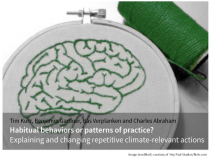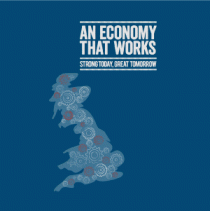- About
- Team
- Projects
- Children and the Environment
- ELiCiT (Exploring lifestyle changes in transition)
- Foundations for Sustainable Living
- HABITs
- Mapping Rebound Effects
- PASSAGE (Prosperity and Sustainability in the Green Economy)
- Policy Dialogue
- Price Responsiveness of Demand in Energy
- Resilience and Sustainable Lifestyles
- Sustainability Transitions in Food Systems
- Sustainable Living in Remote Rural Scotland
- Publications
- News
- Events
Resilience and Sustainable Lifestyles
Project Team: Rebecca White and Andy Stirling (University of Sussex, SPRU)


Audio: Rebecca White, Project Summary for SLRG Dissemination Event | 3 June 2014
Audio: Andy Stirling on Policy Implications | 3 June 2014
Communal food growing – the focus of this research – is one of many examples of civil society based grassroots-level experimentation. In a range of ways these activities can influence transitions to sustainability. However, due to a variety of factors including stop-start funding, voluntarism, insecurity of tenure, group tensions, the need to cater for a range of needs and demands, these initiatives can struggle to survive. Ascertaining how communal food growing can be ‘resilient’ is therefore important; this was one aim of the research.
A second aim was to explore the ‘politics’ of resilience-building given the often different notions of means and ends that can coexist within any grassroots experiment, raising questions such as ‘what are we sustaining, in relation to which pressures, and for what ends?’ The politics of sustaining becomes particularly relevant when we consider the – often contested – role(s) we wish to see civil society playing. Civil society organisations can be heavily involved in delivering outcomes for government and other non-civil society organisations, which casts it in an instrumental light and working with the grain of existing power structures. Civil society can also agitate for change according to what members wish to transform; working against the grain.
This research focussed on communal food growing in East Sussex, and particularly Brighton. Forty people were interviewed from communal growing initiatives and their networks. Two interviewing techniques were used: semi-structured interviews and multi-criteria mapping (MCM).
We found that communal food-growing faces multiple pressures, but the potential for communal food- growing to offer different things to different people (wellbeing, food, community, skills development, a means to reduce inequalities) has enabled it to thrive as an activity in Brighton and East Sussex.
A second key factor has been the interdependence between gardens and intermediary organisations that helps foster longevity of this activity. This in turn enables broader scale change in food systems at a local level. Through this network of affiliated organisations with multiple roles, instrumental forms of funding that are not directly related to sustainability can nevertheless contribute towards local transitions in certain circumstances.
All of this has implications for policy and further research. Firstly, funding for communal growing spaces, and associated evaluation methods, that recognise and value diversity in process as well as outcome is important. Secondly, Government and funding organisations, and associated policy, needs to be supportive of intermediary organisations with multiple roles, rather than pushing specialisation.
Finally, intermediary organisations with a broad remit, but working at the local scale, can be an important part of civil society-based innovation systems working towards sustainable food. Support for this medium-scale organisation is needed.
Contact:
If you have further questions please contact Rebecca White or Andy Stirling.













